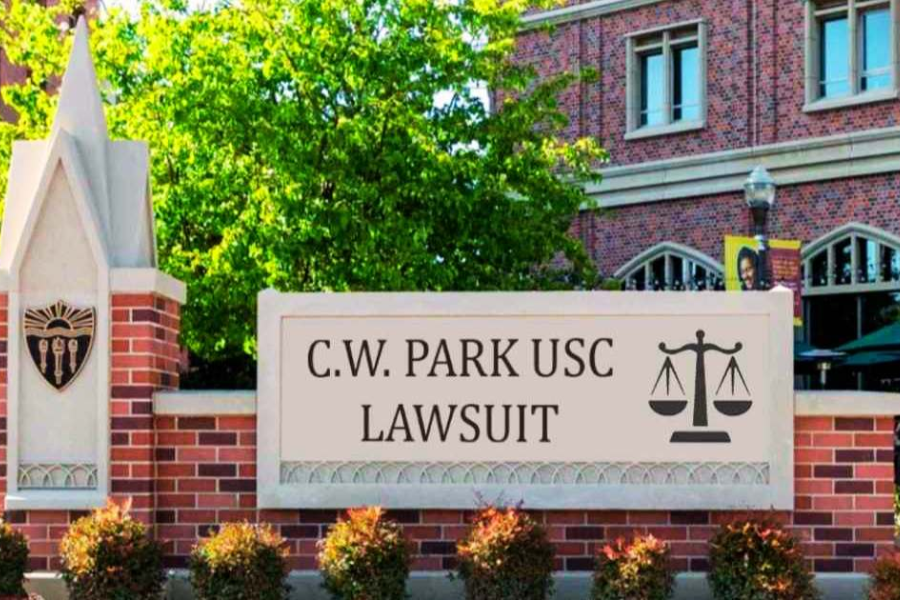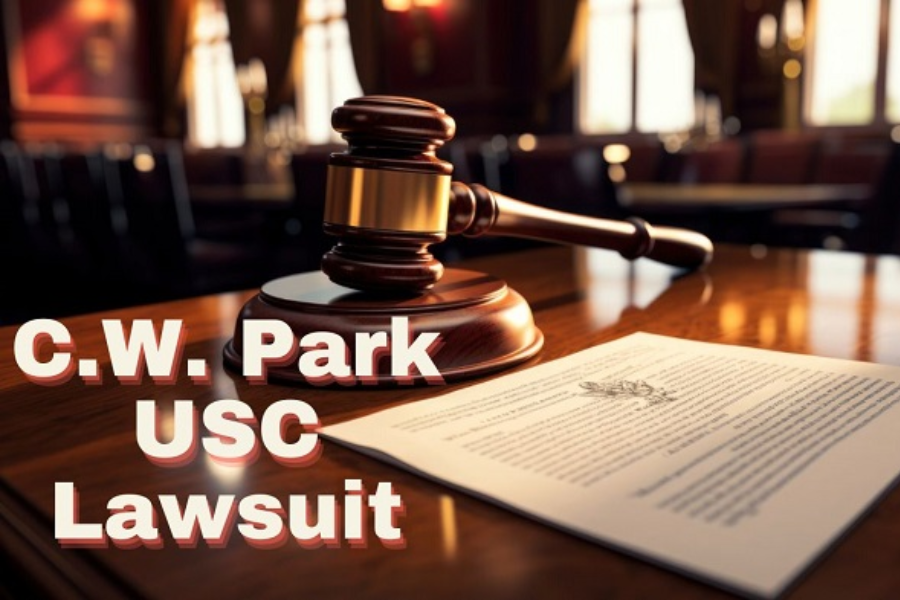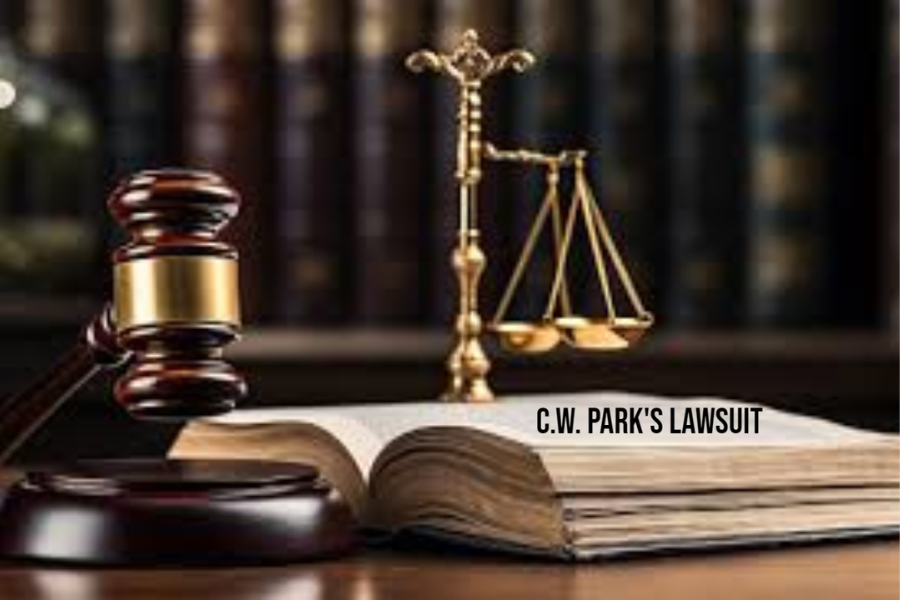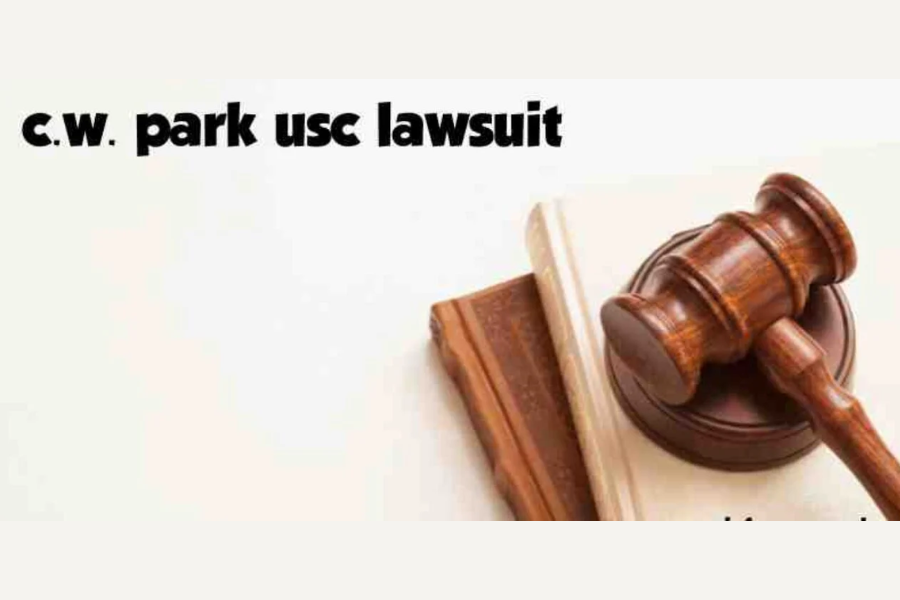In November 2023, C.W. Park, a former professor at the University of Southern California (USC), initiated a significant lawsuit against the university. Park’s suit, which alleges wrongful termination, retaliation, and discrimination, has quickly garnered widespread attention. This case brings to light the urgent and sensitive issues of sexual harassment, and discrimination, and the critical need for accountability within higher education institutions. Park’s allegations paint a troubling picture, claiming that his dismissal was not just unfair but also retaliatory and discriminatory, raising serious questions about the university’s handling of such matters.
This blog aims to delve deeply into the intricacies of C.W. Park Usc lawsuit, providing a detailed and thoughtful examination of the case. We will explore the background of Park’s career at USC, the circumstances leading to his termination, and the specific nature of his allegations. We will also scrutinize the university’s response, including their public statements and legal defenses. As the legal proceedings unfold, this blog will keep you updated on the latest developments, offering insights into the strategies and implications for both parties involved.
Moreover, we will discuss the broader impact of this lawsuit on USC and the higher education sector at large. This case has the potential to influence university policies and practices regarding sexual harassment and discrimination significantly. By analyzing this lawsuit within the context of similar cases across the United States, we aim to shed light on the systemic issues prevalent in academic environments. Our goal is to provide a comprehensive narrative that is both informative and engaging, encouraging readers to reflect on the importance of justice, fairness, and accountability in higher education.
Background History Of The Case

The genesis of the c.w. park usc lawsuit provides a comprehensive overview of the nature of the case. This lawsuit isn’t just about one individual’s grievances; it encompasses a broader narrative involving multiple accusers and serious allegations. Alongside Jane Doe, three other women have stepped forward with their own disturbing accounts. These women have reported instances where Park allegedly made inappropriate comments and engaged in non-consensual physical contact. Their collective testimonies reveal a troubling pattern of behavior that demands thorough investigation and scrutiny.
As the legal proceedings continue, the complexities and nuances of this case are coming to light, highlighting the intricate details and underlying issues. Each account adds a layer of depth to the allegations, suggesting a potentially pervasive problem. This background is crucial for understanding the full scope of the lawsuit and the significant implications it holds, not only for C.W. Park and USC but also for the broader conversation around sexual harassment and accountability in higher education.
Claims Of Retaliation And Wrongful Termination

At the heart of C.W. Park’s lawsuit against USC lies the assertion that his termination was a direct act of retaliation for his opposition to sexual harassment and discrimination on campus. Park contends that his troubles began after he reported a case of a student sexually harassing a faculty member to USC’s Title IX office in 2019. Title IX mandates that universities thoroughly investigate claims of sexual harassment and violence, making Park’s report a protected activity under federal law.
According to Park, this act of reporting set off a chain of retaliatory actions by the university, ultimately culminating in his termination in 2020. He argues that his efforts to highlight sexual misconduct at USC placed a target on his back, leading to unjust professional repercussions. To substantiate his claims of retaliation, Park needs to demonstrate that his termination was a direct consequence of his protected activity — specifically, his opposition to discrimination. If he can present compelling evidence linking his dismissal to his reporting of the sexual harassment incident, he could successfully argue that his termination was wrongful and in violation of Title IX and anti-discrimination laws.
Accusations Of Discrimination
Beyond retaliation, Park also accuses USC of discriminating against him based on his race and gender. He asserts that as an Asian American male, he was subjected to different treatment compared to his peers, ultimately leading to his termination. Park believes that discriminatory attitudes towards his identity played a significant role in his dismissal, suggesting that he was judged more harshly than other professors.
To prove his discrimination claim, Park must show that he was qualified for his position and that his termination occurred under circumstances suggesting racial or gender bias. This could involve demonstrating that professors of other races or genders received preferential treatment or presenting evidence of biased statements made against Asian American males. Park aims to convince the court that unlawful discrimination was a key factor in his termination.
USC’s Defense
USC has vigorously denied all allegations made by Park, insisting that his termination was solely due to his inadequate job performance. The university claims that Park failed to meet the standards expected of his position, citing deficient teaching abilities, lack of student engagement, and an overall inability to fulfill essential faculty responsibilities as the reasons for his dismissal. USC strongly denies that retaliation or discrimination had any part in its decision to terminate Park’s employment.
In response to Park’s lawsuit, USC has filed a motion to dismiss, arguing that Park’s claims are speculative and unsupported by evidence. The university maintains that Park cannot prove he engaged in a protected activity or that unlawful retaliation or discrimination occurred. According to USC, Park’s termination was based on legitimate, non-discriminatory reasons, and his allegations are an attempt to fabricate a narrative to excuse his professional shortcomings.
The court will need to carefully evaluate the arguments and evidence presented by both sides to decide whether Park’s case has sufficient merit to proceed to trial.
Challenges For Higher Education
The repercussions of the C.W. Park USC lawsuit extend far beyond its immediate impact on USC, potentially casting a shadow over higher education institutions as a whole. The emergence of numerous students considering class action lawsuits alleging violations of Title IX rights underscores broader concerns about systemic issues within universities. Recent lawsuits, including those by current students and faculty members at USC, have accused the institution of fostering a “culture of silence” regarding sexual misconduct, further intensifying scrutiny on academic institutions’ handling of such matters.
Legal proceedings like Park’s have the potential to reshape universities’ liability and accountability in the face of class action claims. Allegations of discrimination and retaliation, if substantiated, could serve as significant grounds for larger collective legal actions against institutions. These cases not only challenge the integrity of individual universities but also prompt broader questions about the effectiveness of current policies and practices in safeguarding students and employees.
This segment delves into the profound impact of these incidents on public perception of academia. Such controversies erode trust in the education system’s ability to uphold values of fairness and safety. Moving forward, institutions must take proactive steps to restore credibility by reinforcing transparent and responsive protocols for addressing allegations of misconduct. By prioritizing accountability and fostering a culture of openness, universities can begin to rebuild trust and demonstrate their commitment to providing a safe and equitable environment for all members of their community.
Legal Proceedings And Court Battles: Unpacking The C.W. Park USC Lawsuit

The legal battle between C.W. Park and USC unfolded dramatically in the courtroom, where accusations of discrimination and retaliation were vigorously debated. Lawyers from both sides presented their evidence, called witnesses to testify, and navigated the charged atmosphere as each sought to argue their case persuasively.
During the court proceedings, intricate details of the allegations were meticulously examined to uncover the truth. Testimonies were heard, documents were scrutinized, and every piece of evidence was analyzed to determine the validity of Park’s claims. The judge’s gavel punctuated key moments, marking decisions that could significantly influence the case’s outcome.
Legal arguments clashed like titans, each side mounting intense challenges and counter-challenges. As the days of litigation wore on, tensions escalated, with both the plaintiffs and the defense vying to sway the judgment in their favor. Spectators in the courtroom watched intently, aware that the resolution of this case could set important precedents for how similar issues are handled in the future.
This legal battle was not just a dispute between two parties; it represented a broader clash of principles and values. Every word spoken and action taken carried substantial weight, as the stakes were high for both Park and USC. The courtroom became an arena where the ideals of justice, fairness, and accountability were put to the test, with the final judgment poised to reflect the integrity of these fundamental principles in the eyes of the law.
The Need For Continued Advocacy

Ultimately, while the C.W. Park lawsuit against USC centers on his specific claims, it underscores the broader and ongoing need for advocacy around issues of sexual harassment, discrimination, and institutional accountability. This case has not only brought Park’s allegations to light but has also mobilized student activists and women’s rights groups who see it as a critical opportunity to demand systemic change from USC.
These advocates view the lawsuit as a catalyst to raise awareness about the persistent inequities that exist within higher education. They are pushing for more stringent policies and better enforcement to ensure a safe and equitable environment for all members of the academic community. The case has sparked a movement, drawing attention to the importance of addressing these issues head-on and not allowing them to be swept under the rug.
As the legal proceedings continue, these advocates will closely monitor the developments to gauge progress and hold the institution accountable. Their efforts highlight the vital role of continued advocacy in driving meaningful change. By keeping the pressure on, they aim to ensure that the issues raised in this lawsuit lead to concrete actions and improvements within USC and beyond, fostering a culture of fairness, respect, and accountability in higher education.
How The C.W. Park Lawsuit Is Shaping USC’s Reputation And Policies

The controversy surrounding C.W. Park’s lawsuit against USC has had a profound impact on the university’s reputation and internal policies. As the allegations of discrimination and retaliation became public, they cast a long shadow over USC. The university, once held in high regard, now faced scrutiny and criticism, leading many to question its commitment to diversity and inclusion. The public perception of USC shifted, with many seeing it as an institution needing serious reform in how it handles issues of discrimination and bias.
This negative publicity compelled USC to take a hard look at its internal practices. The university had to acknowledge that its policies and procedures might inadequately address the complex issues of discrimination and harassment. This introspection led to significant internal discussions and debates about how to create a more inclusive and equitable environment for everyone on-campus—students, faculty, and staff alike. The legal battle underscored the necessity for the university to not only reevaluate but also strengthen its commitment to fostering a supportive and fair community.
In response to the backlash, USC began implementing tangible changes aimed at rebuilding trust and demonstrating a genuine commitment to equality. These measures included revising anti-discrimination policies, enhancing diversity and inclusion training programs, and ensuring more transparent and effective processes for handling complaints. The university’s leadership recognized that to restore its reputation, it needed to show that it was serious about addressing these issues. The ongoing impact of Park’s lawsuit will likely influence USC’s future decisions and policies, pushing the institution toward greater accountability and transparency. This case has emerged as a pivotal moment for USC, emphasizing the critical importance of actively upholding and promoting an environment where fairness and equality prevail.
Key Insights From The Controversy
The controversy surrounding C.W. Park’s lawsuit against USC has illuminated critical lessons that resonate beyond the specifics of this legal battle. It underscores the paramount importance of cultivating an inclusive and equitable environment within academic institutions to prevent discrimination and bias from taking root.
First and foremost, the case highlights the necessity of conducting thorough investigations into allegations of misconduct. Prompt and decisive action is crucial in addressing any issues that arise, ensuring that individuals feel safe and respected within their academic community. Transparency throughout these processes is equally essential, fostering trust and credibility among all stakeholders involved.
Moreover, the lawsuit underscores the complex power dynamics inherent in higher education institutions. It emphasizes the responsibility these institutions bear in safeguarding fairness and justice for every member of their community, regardless of background or identity. This serves as a potent reminder for organizations to prioritize diversity, equity, and inclusion initiatives as integral components of their operational ethos.
Ultimately, the lessons gleaned from this controversy serve as a guidepost for academic institutions and beyond, urging them to proactively uphold principles of fairness and accountability. By learning from such challenges, organizations can strengthen their commitment to fostering a supportive and respectful environment where all individuals can thrive and contribute positively to society.
Wrapping Up
C.W. Park’s lawsuit against USC has sparked significant controversy, focusing on allegations of retaliation and discrimination. Park asserts that his termination was in retaliation for reporting a student’s sexual harassment incident to USC’s Title IX office, which is protected under federal law. Additionally, he alleges discrimination based on his race and gender, contending that he received unfair treatment compared to his peers.
USC has vehemently denied these allegations, asserting Park’s termination was solely due to poor job performance. The university contends his teaching and professional conduct did not meet the required standards.
The legal battle has broader implications for USC and higher education. It has raised questions about institutional handling of discrimination and harassment complaints, prompting scrutiny of policies and practices. The outcome may influence future litigation and policies regarding workplace fairness and accountability within academic settings.
People Also Ask (FAQs)
1. How much did Marshall donate to USC?
In 1997, USC was renamed following a generous $35 million donation from alumnus Gordon S. Marshall.
2. What is the USC lawsuit about social work?
Graduates of USC’s online Master’s in Social Work (MSW) program filed a class action lawsuit against USC in May 2023. The lawsuit alleges misrepresentation, false advertising, and other deceptive, unfair, and unlawful business practices related to the program.
3. Is USC good for social work?
USC’s Master of Social Work (MSW) program holds accreditation from the Council on Social Work Education (CSWE). The program is crafted to fulfill the eligibility requirements for licensure exams administered by the California Board of Behavioral Sciences (BBS) and the Association of Social Work Boards (ASWB). According to US News rankings, USC’s MSW program is widely respected for its comprehensive preparation of clinical social workers.
4. What is the acceptance rate for USC MSW program?
USC is highly selective, with an acceptance rate of only 18% for the MSW program in fall 2015.
5. How much is USC worth?
As of fiscal year 2019, USC reported $9.2 billion in net assets, marking a 19% increase since 2015. This growth reflects successful fundraising campaigns, endowment performance, and contributions from the healthcare enterprise.
Stay Connected for more updates and alerts visit: Latest Dash!

